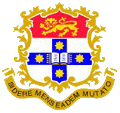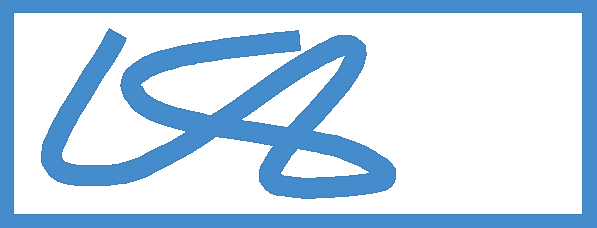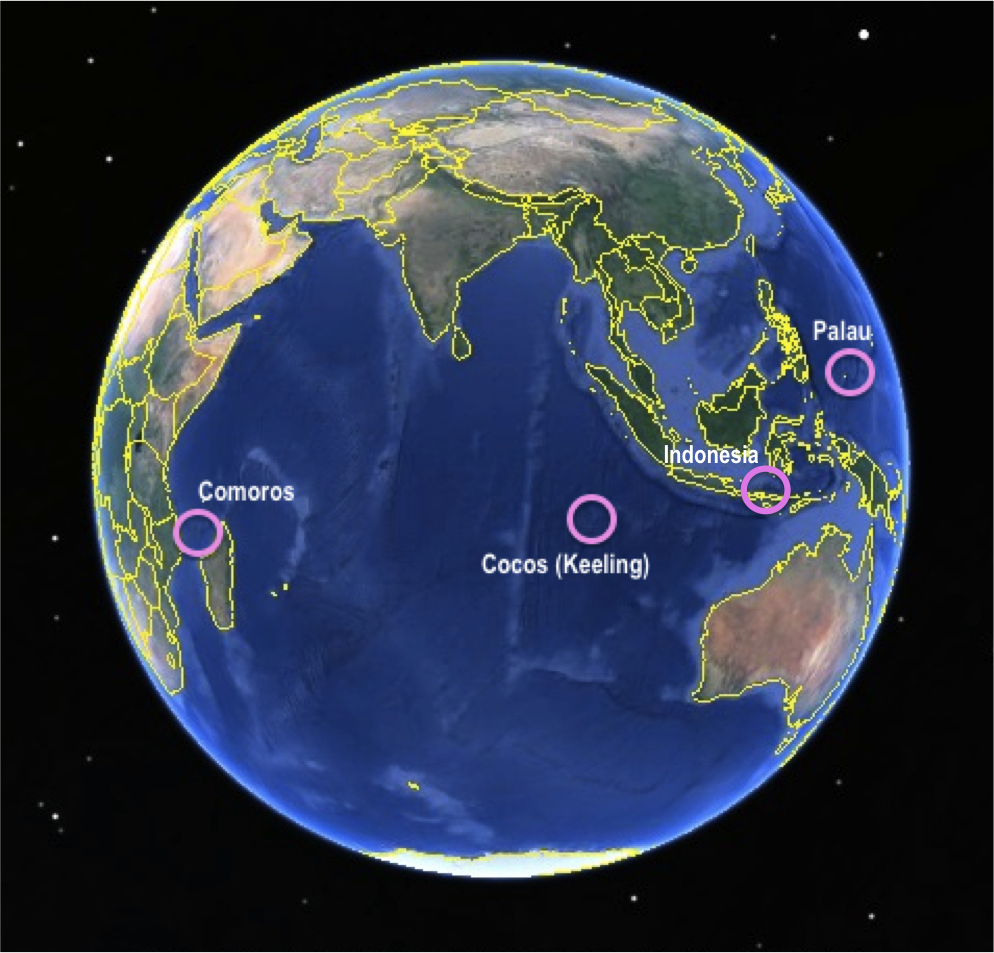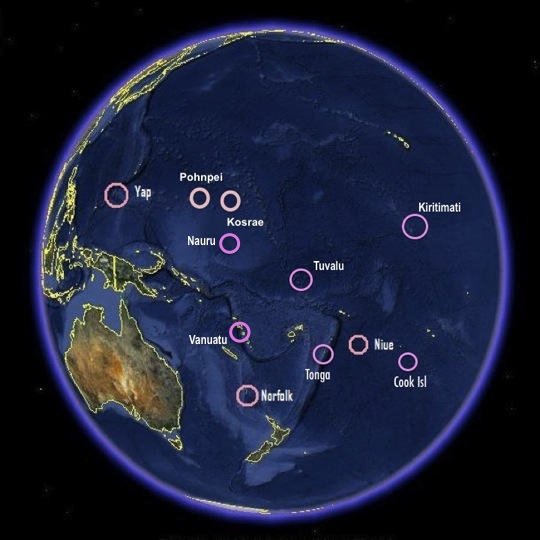 |
Integrated Sustainability Analysis |
 |
| Home Contact Search Media |
|
Sustainable Islands program at the University of SydneyThe Sustainable Islands program of the ISA team at the University of Sydney is aimed at identifying the sustainability situation on small and remote Pacific islands. The program originated out of a partnership between ISA and EcoNorfolk on Norfolk Island. So far the program includes participants from Yap, Niue, Pohnpei, Kosrae, Tonga, the Cook Islands, Kiritimati, Tuvalu, Palau, Cocos (Keeling) Islands, Vanuatu, Nauru, Indonesia, and the Comoros (see map at the bottom of this page). The program has received support under the Australia Awards Fellowships scheme funded through DFAT. The funding enables a training program in sustainable development techniques for leaders of small remote islands. Training programs are conducted at the University of Sydney, Sydney Institute of Marine Science (SIMS) and Norfolk Island. Please download our invitation letter and information for applicants.The program is coordinated by Dr Joy Murray and Prof Manfred Lenzen of Sydney University's ISA team. Joy and Manfred also take part in the training. Kerin Wood and Peter Wood work as volunteers in the program. Shauna Murray is a program trainer at SIMS, and Denise Quintal, Jodie Quintal, and Nicole Diatloff from EcoNorfolk Foundation are program trainers on Norfolk Island. The program participants are Dr Murukesan Krishnapillai of the College of Micronesia-FSM from Yap Campus in the Federated States of Micronesia, Deveraux Talagi from the Premiers Office of the Niue Government, Cindy Ehmes from the Office of Environment and Emergency Management on Pohnpei in the Federated States of Micronesia, Simpson Abraham from the Office of Pacific Adaptation to Climate Change on Kosrae in the Federated States of Micronesia, June and Andrew Hosking from kia TAERIA on Mauke, Cook Islands, Pelenatita Kara from the Civil Society Forum of Tonga, Alissa Takesy from the Department of Resources and Development of the Government of the Federated States of Micronesia, Christina Fillmed from the Yap State Environmental Protection Agency in the Federated States of Micronesia, Beraina Teirane from the Ministry of Line and Phoenix in Kiribati, Hassane Sambaouma from Agriventures Comoros in the Comoros Islands, Ibrahim Ahamada from the pan-African e-network project in the Comoros Islands, Anitelu Toe'api from the Civil Society Forum of Tonga in Tonga, Mafalu Lotolua from the Power Supply Department in Tuvalu, Motulu Jack Pedro from the Ministry of Foreign Affairs, Tourism, Trade, Environment and Labour in Tuvalu, Sulufaiga Uota from the Ekalesia Kelisiano Tuvalu in Tuvalu, Ratita Bebe from the Kiritimati Island Wildlife & Conservation Unit of the Ministry of Environment, Lands and Agriculture Development on Kiritimati Island in Kiribati, Moutu Barairai from the Ministry of Line and Phoenix Islands Development on Kiritimati Island in Kiribati, Dan Olaf Rasmussen from the National Environment Service in the Cook Islands, Roxanne Blesam from the Environmental Quality Protection Board of Palau, Aana Teetan Berenti from the Kiritimati Island Wildlife & Conservation Unit of the Ministry of Environment, Lands and Agriculture Development on Kiritimati Island in Kiribati, Mei Suciyati from the Institut Lintas Studi on Komodo Island, Indonesia, Basilio Tutai Kaokao from the from the National Environment Service on Mauke in the Cook Islands, Maketara Ioane from the Ministry of Line and Phoenix Islands Development on Kiritimati Island in Kiribati, Hermansyah Akbar from the Canting Exploring Environment Program on Komodo Island in Indonesia, Sean Kadannged from the Tamil Resources Conservation Trust on Yap in the Federated States of Micronesia, Ahohiva Levi from the Legislative Assembly and High Court in Niue, John Wichman, a waste management consultant from Rarotonga in the Cook Islands, Mary McDonald from Te Ipukarea Society in the Cook Islands, Vanessa Lolohea from the National Youth Congress in Tonga, Marie Napip Nickllum from Live and Learn Vanuatu, Peauafi Toe'api from the 'Anana Community Development in Tonga, and Tyrone Deiye, the representative of the Ijuw Community in the Nauru Government. Feedback"... the best training I have ever attended. This training has really opened and changed my way of thinking and my way of looking at life in my country." - Tyrone Deiye, NauruRationaleRegarding sustainability, most island communities face two major challenges: energy supply and waste disposal. First, most islands do not have indigenous energy resources, but instead have to ship in fuels over often considerable distances, at a considerable financial burden. Second, most islands do not have enough space for operating landfills, so that waste is often burnt under hazardous conditions, with resulting toxic emissions to air. Especially the oil embargos forced many island governments to re-think their energy supply strategies, and to consider introducing renewable energy sources, and efficiency and conservation policies. Similarly, landfill shortage and high energy prices have stimulated debates about waste-to-energy facilities. Amongst the many obstacles preventing new energy and waste technologies to be implemented on remote islands are regulatory, legal and institutional barriers, high upfront capital cost and lack of aid, lack of skills to maintain technically sophisticated facilities, lack of knowledge, especially by policy makers, and inappropriate technology design, small size of the island economies preventing economies of scale for some technologies, and visual obstruction, noise, odour and other community objections. OutcomesOur training programs involve an Australia Awards Fellowship. Fellows chosen to receive a Fellowship are expected to be leaders or potential leaders in their field, with the likelihood of making a valuable contribution to their country on their return home. The training assists island communities in addressing the sustainability challenges of: energy supply, waste disposal, and maintaining export industries. Fellows from the Pacific Islands will gain knowledge and practical know-how about
We understand that island leaders need to be all-round experts. The training therefore addresses island leaders' needs through training on a broad selection of relevant issues, and a range of training modes. Our program covers: tailored environmental accounting courses designed for community leaders as well as business and government professionals; guided team work and discussions; practical training in modern fisheries and aquaculture management; and through a practical sustainability training program conducted on Norfolk Island. Here, emphasis is placed on bringing Fellows into dialogue with Norfolk Islanders who are community leaders in implementing alternative energy and waste strategies without any outside assistance. Thus, Fellows can obtain first-hand knowledge about solutions that are suited to island environments and skill pools. The training program will provide diverse yet sound knowledge needed for communicating and implementing strategies that address energy, waste, pollution and fisheries issues. This knowledge will position Fellows to provide policy advice to their communities and governments. Through witnessing island-based examples of applied local knowledge and self-sufficiency in alternative energy use and waste disposal, Fellows will gain practical experience to complement their existing knowledge.
Further informationA full Triple Bottom Line report on Norfolk Island, and a summary of the 2013 and 2015 training programs on Norfolk Island are available for download. In November 2010, Prof Manfred Lenzen visited Niue in order to plan for a sustainability initiative similar to that realised on Norfolk Island. The visit is documented in a televised interview on Niue TV. ISA thanks Tom Murray for editing the video file.
The location of islands participating in the project.
For further information please contact
|

